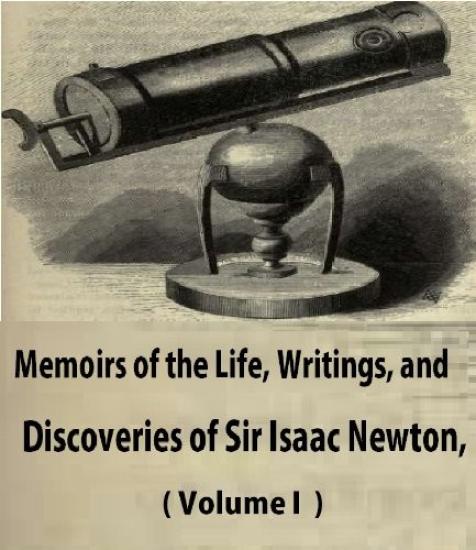
Rating: Not rated
Tags: Lang:en
Added: October 18, 2020
Modified: November 5, 2021
Summary
PREFACE. In consequence of the wide circulation of the Life of Sir
Isaac Newton, which I drew up for the " Family Library " in
1831, I was induced to undertake a larger work, in order to
give a more detailed account of his Life, Writings, and
Discoveries. For this purpose I applied in 1837 to the
Honourable Newton FeUowes, one of the trustees of the Earl of
Portsmouth, for permission to inspect the Manuscripts and
Correspondence of Sir Isaac, which, through his grandniece,
Miss Conduitt, afterwards Lady Lymington, had come into the
possession of that noble family. Mr. FeUowes kindly granted
my request, and his amiable and accomplished son, Mr. Henry
Arthur FeUowes, who, had he Uved, would now have been Earl of
Portsmouth, met me in June 1837, at Hurtsbourne Park, to
assist me in examining and making extracts from the large
mass of papers which Sir Isaac had left behind him. In this examination our attention was particularly
directed to such letters and papers as were calculated to
throw light upon his early and academical life, and, with the
assistance of Mr. FeUowes, who copied for me several
important documents, I was enabled to collect many valuable
materials unknown to preceding biographers. After the death of Sir Isaac, his nephew, Mr. Conduitt,
drew up a memorial, containing a sketch of his life, for the
use of Fontenelle, the Secretary to the Academy of Sciences
in Paris, whose duty it was to write his Eloge, as one of the
eight Associates of the Academy. This memorial was published
by Ed-mond Turnor, Esq., in his " Collections for the History
of the Town and Soke of Grantham," and was supposed to
contain all the information that Mr. Conduitt could collect
from persons then alive, and from other sources, respecting
Sir Isaac's life. This, however, was a mistake. After the
publication of Fon-tenelle's Eloge, Mr. Conduitt resolved to
draw up a Life of his illustrious relative, and, with this
view, he wrote the following letter, requesting the
assistance of Sir Isaac's personal friends :'— " Gth February 172|. " Sir, —I have taken the liberty to trouble you with
some short hints of that part of our honoured friend, Sir I.
Newton's life, which I must beg the favour of you to
undertake, there being nobody, without dispute, so well
qualified to do it as yourself. I send you, at the same time,
FonteneUe's Eloge, wherein you will find a very imperfect
attempt of the same kind ; but I fear he had neither
abilities nor inclination to do justice to that great man,
who had eclipsed the glory of their hero, Descartes. As Sir
I. Newton was a national man, I think every one ought to
contribute to a work intended to do him justice, particularly
those who had so great a share in his esteem as you had; and
as I pretend to nothing more than to compile it, I shall
acquaint the public in the Preface, to whom they are indebted
for each particular part of it. 1 This letter is docqueted by Conduitt, " Letter sent by
me concerning Sir I. N.'s Inventions." " I am persuaded that the hints I have sent you are
very-imperfect, and that your own genius will suggest to you
many others much more proper and significant, and I beg of
you to put down everything that occurs to your thoughts, and
you think fit to be inserted in such a work. " I conjure you not to put off what I take the liberty to
recommend to you. As on one hand the complying with my
request will be a mark of your gratitude to your old friend,
and an eternal obligation on me, so your delaying it will be
the most mortifying disappointment to, " Sir, " Your most humble Servant, " John Conduitt."^ Although Mr. Conduitt had at this time resolved to compile
a Life of Sir Isaac, and had obtained much information from
Dr. Stukely, Mr. Wickins, and Dr. Humphrey Newton of
Grantham, yet he seems to have so far relinquished his
design, that in June 1729, nearly eighteen months after the
date of his letter, he intimates to a friend^ that " he has
some thoughts of writing the Life of **